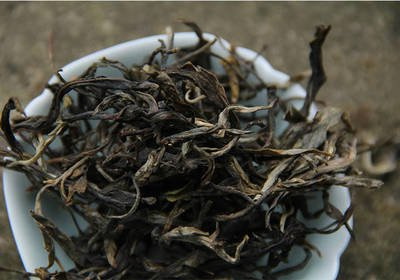茶叶源于中国,拥有悠久的历史和丰富的文化内涵。作为世界上最古老的饮品之一,茶叶在现代人们的生活中仍然扮演着重要的角色。茶叶不仅有着独特的香味和口感,还具有多种益处。探索茶叶的好处和功效,可以帮助我们更好地了解这个古老饮品对健的积极影响。

茶叶有哪些好处
茶叶被泛认为对健有益,这是由它所含有的丰富的抗氧化物质和营养物质所决定的。茶叶中的主要抗氧化物质是茶多酚,它对身体起到了很多积极的作用。首先,茶叶中的茶多酚有助于抗衰老。它能够抑制自由基的生成,减缓细胞的老化过程。同时,茶叶还能够提高身体的免疫力,增强抵抗力,预防感冒和疾病的发生。此外,茶叶中的茶多酚还具有抗炎作用,能够缓解炎症、减轻疼痛。
生水泡茶叶有哪些好处
生是一种常见的调味品,它具有很多对健有益的特性。当生与茶叶结合时,可以产生一系列的健益处。首先,生水泡茶叶有助于消化。茶叶中的咖啡碱和茶多酚能够有效地 *** 胃肠道的蠕动,促进消化,减少胃部不适和消化不良。此外,生还具有消炎抗菌的作用,可以预防胃肠道疾病的发生。同时,生还能够提高身体的新陈代谢,帮助减肥和控制体重。此外,生水泡茶叶还可以缓解吸道感染引起的喉咙痛和咳嗽。
茶叶有哪些好处和坏处
茶叶不仅有好处,也有一些潜在的坏处。首先,茶叶中含有 *** ,过量摄入可能会导致心跳加快、失眠、虑等问题。所以,对于容易中或对 *** 敏感的人来说,应该适量饮用茶叶。其次,长期过量饮茶可能会造成茶渍牙齿的问题。茶叶中的鞣酸可以染色牙齿,导致牙齿变黄。因此,要注意口腔生,适量饮用茶叶或者使用吸管来减少牙齿变色的问题。此外,茶叶中含有草酸,可能会干扰人体对一些矿物质的吸收,长期过度摄入茶叶可能会导致矿物质缺乏。
茶叶有哪些好处和功效
除了上述提到的好处之外,茶叶还具有其他一些功效。茶叶中所含的茶多酚具有降血脂、降胆固醇的作用,有助于预防心血管疾病的发生。此外,茶叶还可以改善血液循环,增强血管弹性,降低血压,预防高血压和中风。另外,茶叶中的咖啡碱和茶多酚能够 *** 中枢神经系统,提神醒脑,提高注意力和学能力。茶叶还具有抗癌的作用,茶多酚能够抑制致癌物质的合成和作用,降低癌症的发生率。
茶叶有哪些好处英文
The Benefits of Tea
Tea, originating from China and with a long history and rich cultural connotations, is one of the oldest beverages in the world. Tea plays an important role in modern people's lives. Apart from its unique aroma and taste, tea has various benefits. Exploring the benefits and effects of tea can help us better understand the positive impact of this ancient beverage on our health.
What are the benefits of tea?
Tea is widely considered to be beneficial to our health, primarily due to the rich antioxidants and nutrients it contains. The main antioxidant in tea is tea polyphenols, which have many positive effects on the body. Firstly, tea polyphenols help slow down the aging process by inhibiting the generation of free radicals and cell deterioration. Tea also boosts the immune system, enhances resistance, and prevents colds and diseases. In addition, tea polyphenols have anti-inflammatory effects, helping to relieve inflammation and reduce pain.
What are the benefits of ginger-infused tea?
Ginger is a common spice with many health benefits. When combined with tea, ginger-infused tea can offer a range of health benefits. Firstly, ginger-infused tea aids digestion. The caffeine and tea polyphenols in tea effectively stimulate gastrointestinal motility, promoting digestion and reducing stomach discomfort and indigestion. Additionally, ginger possesses anti-inflammatory and antibacterial properties, preventing gastrointestinal diseases. Ginger-infused tea also increases the body's metabolism, aiding in weight loss and weight management. Moreover, it can relieve sore throat and cough caused by respiratory infections.
The benefits and drawbacks of tea
Tea has both benefits and potential drawbacks. Firstly, tea contains caffeine, excessive intake of which may lead to increased heart rate, insomnia, and anxiety. Therefore, individuals who are susceptible or sensitive to caffeine should consume tea in moderation. Secondly, long-term excessive tea consumption may result in tea stains on teeth. The tannic acid in tea can stain teeth, causing them to turn yellow. Therefore, maintaining good oral hygiene, drinking tea in moderation, or using a straw can help reduce tooth discoloration. Furthermore, tea contains oxalic acid, which may interfere with the absorption of certain minerals. Long-term excessive tea consumption can lead to mineral deficiencies.
The benefits and efficacy of tea
In addition to the aforementioned benefits, tea has other effects. The tea polyphenols in tea can reduce blood lipids and cholesterol, helping prevent cardiovascular diseases. Furthermore, tea improves blood circulation, enhances blood vessel elasticity, lowers blood pressure, and prevents hypertension and stroke. The caffeine and tea polyphenols in tea stimulate the central nervous system, increasing alertness, attention, and learning ability. Tea also possesses anti-cancer properties; tea polyphenols can inhibit the synthesis and effects of carcinogens, reducing the incidence of cancer.
In conclusion, tea offers numerous benefits for our health, ranging from antioxidation and immune enhancement to disease prevention and mental stimulation. However, it is crucial to consume tea in moderation and be aware of potential drawbacks such as caffeine sensitivity or teeth staining. By understanding the benefits and effects of tea, we can make informed choices about incorporating it into our daily lives for improved overall well-being.








